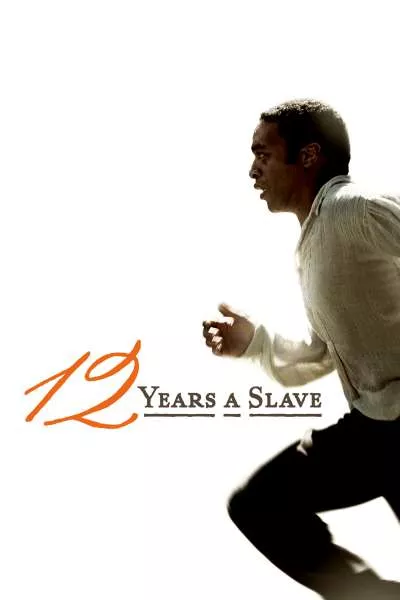
Twelve Years a Slave
'Twelve Years a Slave' Summary
In his home town of Saratoga, New York, Solomon Northup, a free negro who was a skilled carpenter and violinist, was approached by two circus promoters, Brown and Hamilton. They offered him a brief, high-paying job as a musician with their traveling circus. Without informing his wife, who was away at work in a nearby town, he traveled with the strangers to downstate New York and Washington, D.C. Soon after arriving in the capital, he awoke to find himself drugged, bound, and in the cell of a slave pen. When Northup asserted his rights as a free man, he was beaten and warned never again to mention his free life in New York.
Transported by ship to New Orleans, Northup and other enslaved black people contracted smallpox and one died. In transit, Northup implored a sympathetic sailor to send a letter to his family. The letter arrived safely, but, lacking knowledge of his final destination, Northup's family was unable to effect his rescue.
Northup's first owner was William Prince Ford, who ran a lumber mill on a bayou of the Red River. Northup subsequently had several other owners, less humane than Ford, during his twelve-year bondage. At times, his carpentry and other skills contributed to his being treated relatively well, but he also suffered extreme cruelty. On two occasions, he was attacked by John Tibeats, a white man he was leased to, and defended himself, for which he suffered severe reprisals. After about two years of enslavement, Northup was sold to Edwin Epps, a notoriously cruel cotton planter. Epps held Northup enslaved for 10 years, during which time he assigned the New Yorker to various roles from cotton picker, to hauler to driver, which required Northup to oversee the work of fellow slaves and punish them for undesirable behavior. While on Epps' plantation, Northup became friends with a slave girl named Patsey, whom he writes about briefly in the book.
After being beaten for claiming his free status in Washington, D.C., Northup in the ensuing 12 years did not reveal his true history again to a single person, slave or owner. Finally he confided his story to Samuel Bass, a white carpenter and abolitionist from Canada working at the Epps plantation. Bass, at great risk to himself, sent letters to Northup's wife and friends in Saratoga. Parker, a white shopkeeper, received one of the letters and sought assistance from Henry B. Northup, a white attorney and politician whose family had held and freed Solomon Northup's father and with whom Solomon had a longtime friendship. Henry contacted New York state officials. As the state had passed a law in 1840 to provide financial resources for the rescue of citizens kidnapped into slavery, the Governor appointed Henry Northup as an agent to travel to Louisiana and work with law enforcement to free Solomon. Once in Louisiana, Henry Northup hired local Avoyelles Parish attorney, John P. Waddill, to assist in securing Solomon Northup's freedom. After a variety of bureaucratic measures and searches were undertaken, the attorney succeeded in locating Solomon and freeing him from the plantation. Northup later filed charges against the men who sold him into slavery but was unsuccessful in his suit. He returned to New York and reunited with his family there.
Northup concludes his narrative with the following statement:
My narrative is at an end. I have no comments to make upon the subject of Slavery. Those who read this book may form their own opinions of the "peculiar institution." What it may be in other States, I do not profess to know; what it is in the region of Red River, is truly and faithfully delineated in these pages. This is no fiction, no exaggeration. If I have failed in anything, it has been in presenting to the reader too prominently the bright side of the picture. I doubt not hundreds have been as unfortunate as myself; that hundreds of free citizens have been kidnapped and sold into slavery, and are at this moment wearing out their lives on plantations in Texas and Louisiana. But I forbear. Chastened and subdued in spirit by the sufferings I have borne, and thankful to that good Being through whose mercy I have been restored to happiness and liberty, I hope henceforward to lead an upright though lowly life, and rest at last in the church yard where my father sleeps.
— Solomon Northup
Book Details
Language
EnglishOriginal Language
EnglishPublished In
1853Authors
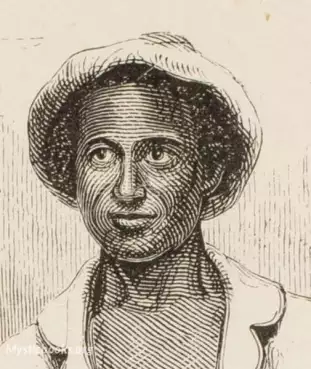
Solomon Northup
United States
Solomon Northup was an American abolitionist and the primary author of the memoir Twelve Years a Slave. A free-born African American from New York, he was the son of a freed slave and a free man of co...
Books by Solomon NorthupDownload eBooks
Listen/Download Audiobook
- Select Speed
Related books

Life and Writings of Amelia Bloomer by Dexter C. Bloomer
Step into the remarkable life of a pioneering advocate with "Life and Writings of Amelia Bloomer" by Dexter C. Bloomer. Unveil the hidden chapters of...

The Story of My Childhood by Clara Barton
The book, "The Story Of My Childhood" by Clara Barton is an autobiography about her life. She overcame so many things in her early life especially aft...
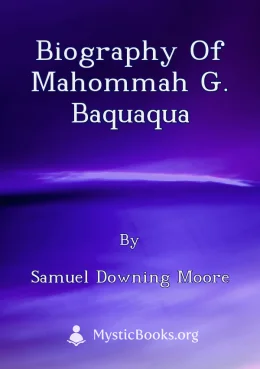
Biography of Mahommah G. Baquaqua by Samuel Downing Moore
The autobiography of Mahommah Gardo Baquaqua, a former slave from West Africa. Baquaqua was sold into slavery in 1845 and worked in Brazil as a captiv...
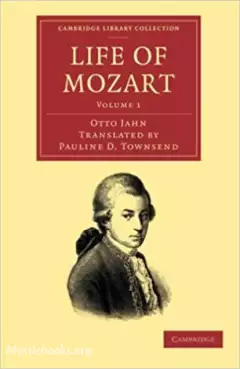
The Life of Mozart Volume 1 by Otto Jahn
An in depth look into the life of one of the greatest ever composers and musicians. Mozart was truly a gifted individual and this is an interesting lo...

Childhood by Leo Tolstoy
Childhood is the first published novel by Leo Tolstoy, released under the initials L. N. in the November 1852 issue of the popular Russian literary jo...

vida de Rubén Darío by Ruben Darío
Vida de Rubén Darío is a compelling memoir written by the acclaimed Nicaraguan poet himself. In this book, Darío takes us on a captivating journey thr...

Journal of Francis Asbury, Volume III by Francis Asbury
As one of the first two bishops of the Methodist church in America and one of the most well-known circuit riders during the spread of Methodism, Franc...

El Libro de la Vida by Santa Teresa de Jesus
El Libro de la Vida se redactó en periodos sucesivos y con finalidades distintas, aunque el periodo de redacción definitivo suele situarse entre 1562-...
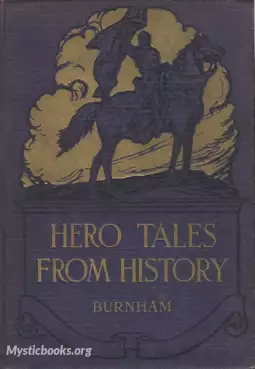
Hero Tales from History by Smith Burnham
This volume celebrates stories of great heroes from the pages of history from Moses and David through Clara Barton and Henry Longfellow. It is divided...
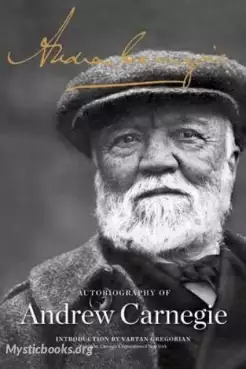
The Autobiography of Andrew Carnegie by Andrew Carnegie
This autobiography of Andrew Carnegie is a very well written and interesting history of one of the most wealthy men in the United states. He was born...
Reviews for Twelve Years a Slave
No reviews posted or approved, yet...